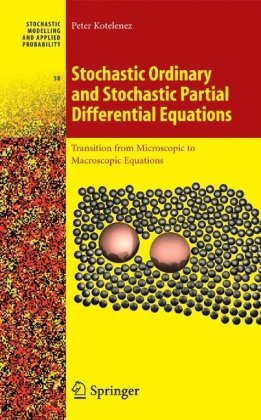

Most ebook files are in PDF format, so you can easily read them using various software such as Foxit Reader or directly on the Google Chrome browser.
Some ebook files are released by publishers in other formats such as .awz, .mobi, .epub, .fb2, etc. You may need to install specific software to read these formats on mobile/PC, such as Calibre.
Please read the tutorial at this link: https://ebookbell.com/faq
We offer FREE conversion to the popular formats you request; however, this may take some time. Therefore, right after payment, please email us, and we will try to provide the service as quickly as possible.
For some exceptional file formats or broken links (if any), please refrain from opening any disputes. Instead, email us first, and we will try to assist within a maximum of 6 hours.
EbookBell Team

0.0
0 reviewsThis book provides the first rigorous derivation of mesoscopic and macroscopic equations from a deterministic system of microscopic equations. The microscopic equations are cast in the form of a deterministic (Newtonian) system of coupled nonlinear oscillators for N large particles and infinitely many small particles. The mesoscopic equations are stochastic ordinary differential equations (SODEs) and stochastic partial differential equatuions (SPDEs), and the macroscopic limit is described by a parabolic partial differential equation.
A detailed analysis of the SODEs and (quasi-linear) SPDEs is presented. Semi-linear (parabolic) SPDEs are represented as first order stochastic transport equations driven by Stratonovich differentials. The time evolution of correlated Brownian motions is shown to be consistent with the depletion phenomena experimentally observed in colloids. A covariance analysis of the random processes and random fields as well as a review section of various approaches to SPDEs are also provided.
An extensive appendix makes the book accessible to both scientists and graduate students who may not be specialized in stochastic analysis.
Probabilists, mathematical and theoretical physicists as well as mathematical biologists and their graduate students will find this book useful.
Peter Kotelenez is a professor of mathematics at Case Western Reserve University in Cleveland, Ohio.